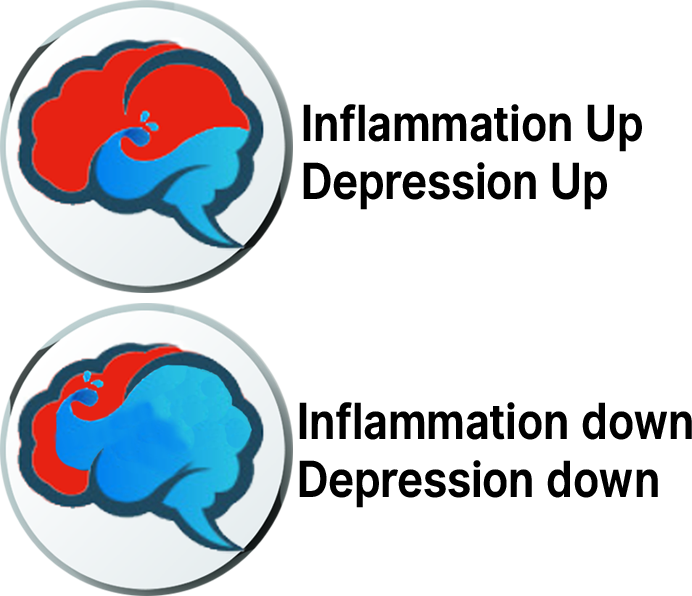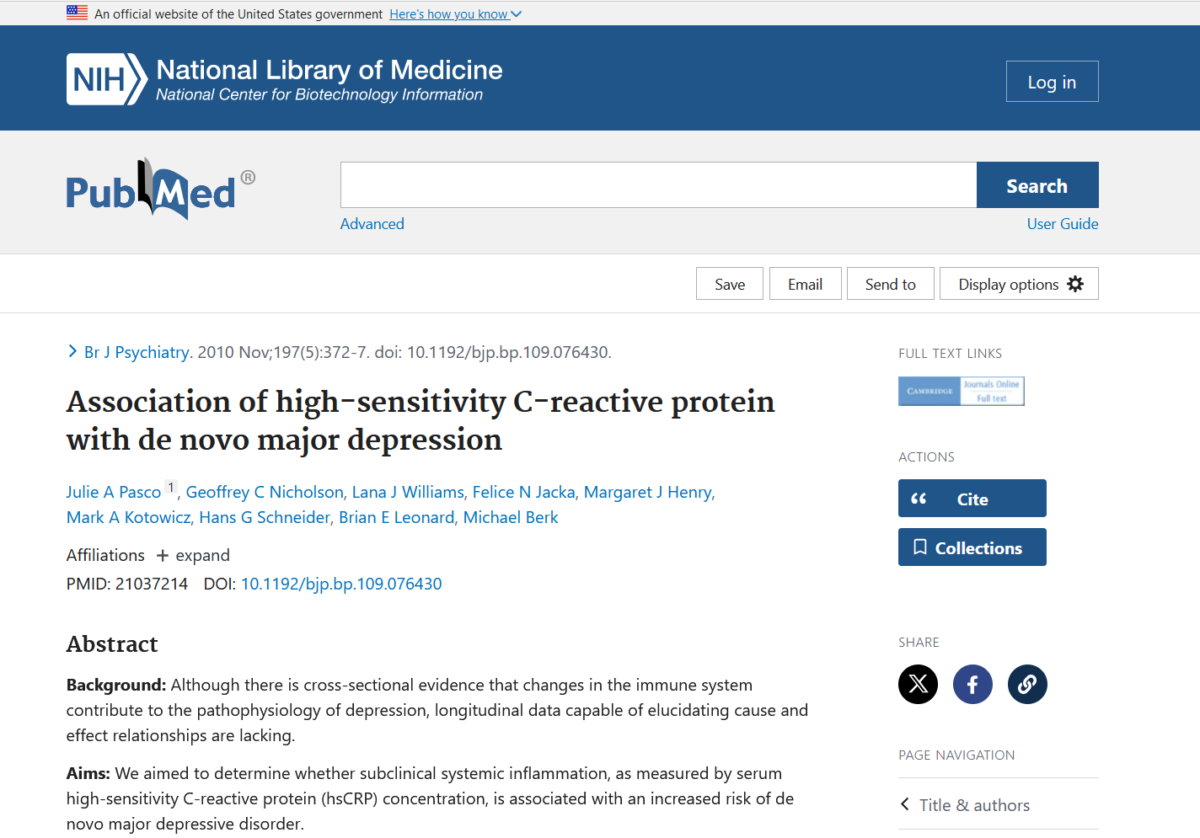A cool thing to remember is that inflammation can easily be measured in the human body. A blood test for CRP (see below) is standard. CRP goes up, and inflammation goes up. CRP goes down, and inflammation is down. More importantly:

Original article: ncbi.nlm.nih.gov/pubmed/21037214
Summary:
Research delves into the correlation between high sensitivity C reactive protein (hsCRP) levels in the blood and the onset of depression. Medical professionals and researchers noted that this protein tends to rise during inflammation after an injury or illness like a cold. They sought to investigate whether inflammation could also impact individuals’ emotional well-being. By tracking a group of women over the years, most of whom had no history of depression, the study revealed that women with elevated hs-CRP levels were notably more prone to developing depression for the time. This discovery suggests that bodily processes like inflammation can influence our health and emotions. Enhancing our understanding of this relationship might pave the way for approaches to prevent or treat depression—an endeavor given its widespread impact on many individuals.
It also suggests that inflammation plays a role in affecting well-being, potentially paving the way for approaches to treatment or prevention targeting inflammation.
Limitations and Future Research: The study specifically focuses on women, so further research is necessary to determine if these results apply to a population. Researchers are keen on uncovering how inflammation triggers brain changes that may contribute to depression.
This research contributes to the expanding body of evidence connecting health with well-being, emphasizing the intricate relationships among our bodily systems. For insights, you can explore the original study, which is available on the PubMed website. There is tons more evidence for inflammation’s role in mental health found in our evidence-BASED relief category.

